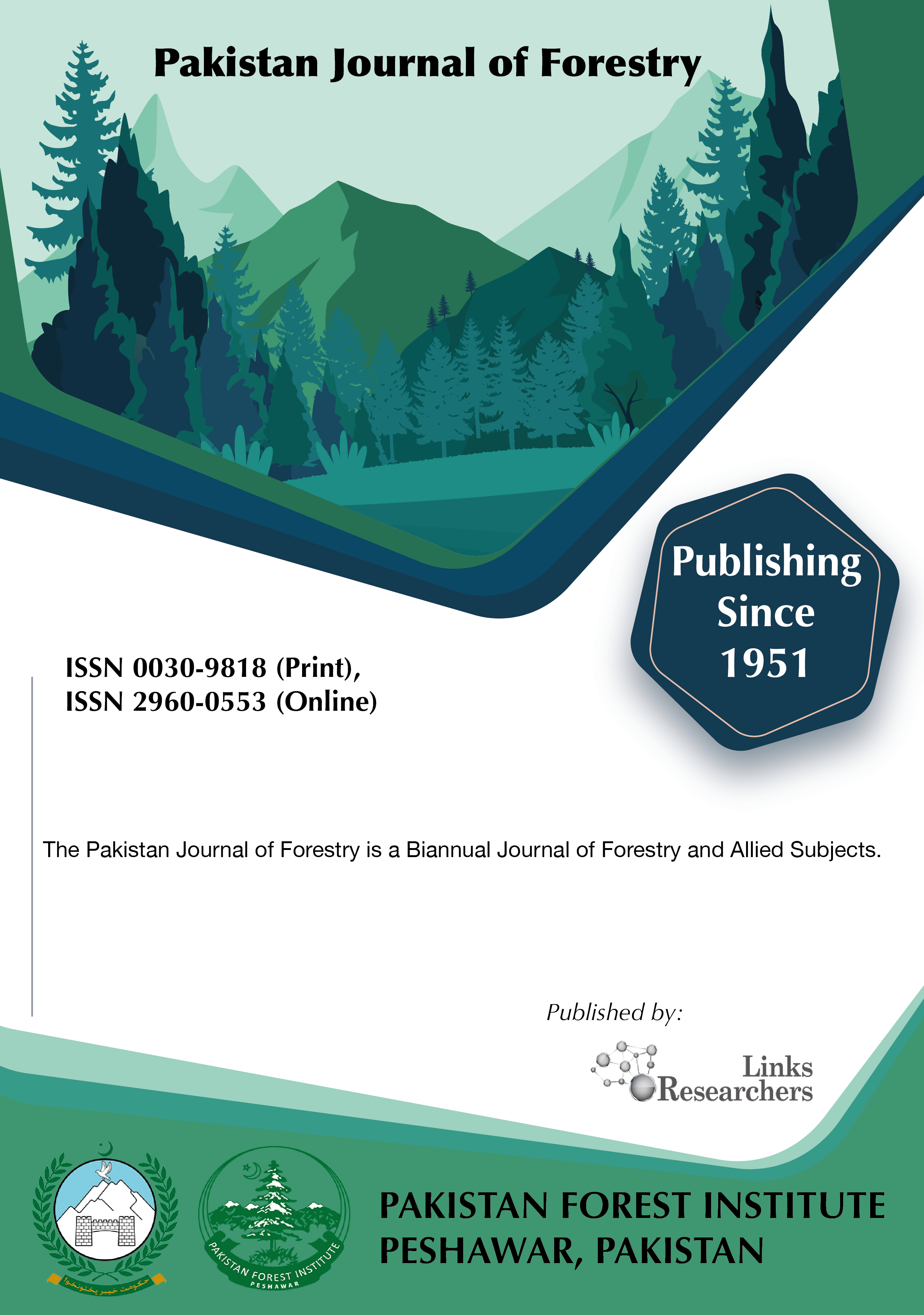Efficiency and effectiveness in joint forest management - A Case Study from Allai Guzara Forests, Khyber Pakhtunkhwa, Pakistan
Mazhar Iqbal1, Ahmad Hussain2 and Zulfiqar Ali Sheikh3
ABSTRACT
In Pakistan, the concept was Joint Forest Management has been implemented as a result of inspiration from the neighbouring countries. This was an effort to replace the hierarchical governance with co-governance with the objective to conserve and protect the forest resource. However, despite of the fact that its main purpose was to improve the forest, the resource depletion has been at constant rise. One of the reasons is the poor forest governance. This study was carried out to assess the current level of forest governance in terms of Efficiency and Effectiveness in Joint Forest Management at Allai Guzara Forests of Pakistan. Multi-stage sampling was adopted and FAOs framework for assessing and monitoring forest governance was used. In total, 20 JFMCs were selected randomly and 100 (40 Users, 40 Owners and 20 Forest Department's Officials) respondents were interviewed on specially designed questionnaire. The data was analyzed using Statistix 8.1 at α=0.05.The existing level of forest Efficiency and Effectiveness was well below the ideal level of governance. There was no statistical difference between the means of Effectiveness and Efficiency (t=-2.16, p=0.0561). Perception of the respondents was strongly correlated. Decrease in forest cover; non implementation of JFM Plans; no availability of comprehensive and upto date inventory and growth information; weak law enforcement; limited JFMC 's skills; and out-dated harvesting system were some of the identified governance issues that needs redressal both at policy and implementation level.
Keywords: Forest Governance, Effectiveness, Efficiency, Joint Forest Management
To share on other social networks, click on any
share button. What are these?




